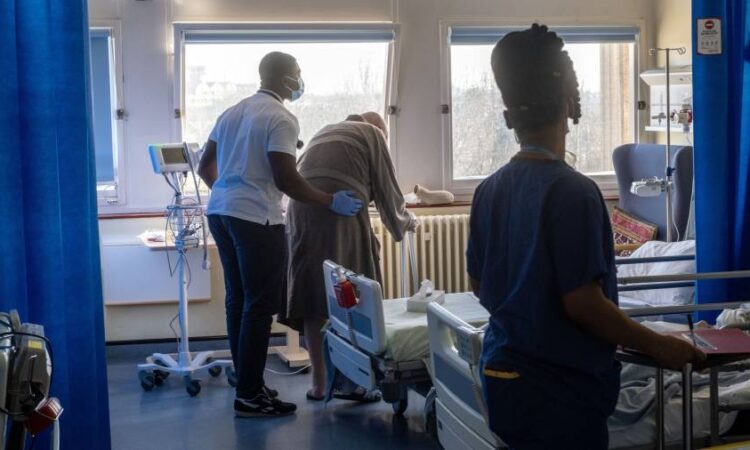
The UK’s low level of government investment has left the country in a “poorer” state compared to other nations, with not enough hospital beds, poor transport links and inadequate housing, according to a new report.
Public investment in the UK has averaged 2.5 per cent of gross domestic product per annum this century, said the Resolution Foundation think-tank.
That is well below the 3.7 per cent average for industrialised countries and the UK is consistently among the weakest third of OECD nations, the report found.
James Smith, research director at the Resolution Foundation and author of the report, said: “Britain’s record on public investment is one of long-term failure.
“Our investment levels are too low and too volatile. As a result, we are left with overwhelmed hospitals, often terrible public transport and a chronic shortage of housing.”
UK hospitals have fewer beds relative to the country’s population size than all but one OECD advanced nation, and fewer magnetic resonance imaging machines than all but four, according to the report.
Inadequate capital spending by the government has held back the UK economy, through poor public transport links and significant congestion, with workers spending more time commuting than those in all but two OECD advanced countries, it said.
Weak investment has also affected housing — with the stock of affordable homes relative to the number of families nearly halving since the 1980s.
This long-term failure to invest in transport, housing, healthcare and local services “has clear consequences in our day-to-day lives, and has made Britain poorer”, concluded the report.
The Resolution Foundation estimated that had UK public investment matched the OECD average over the past two decades, it would have been a “truly transformational” £500bn higher in today’s prices.
The report said total UK capital spending — private as well as public — relative to the size of the economy has been consistently below that of other industrialised countries for decades, contributing to economic stagnation since the 2008 financial crisis.
It highlighted how UK government investment plans were often announced and then scrapped before ever being implemented, resulting in highly volatile capital spending.
As a result, the government on average fails to spend about £1 in every £6 it plans to.
This reflects strong political and fiscal incentives to cut investment when the public finances are under pressure, according to the Resolution Foundation.
“We need to completely reset our approach to public investment, rewriting the UK’s fiscal framework to remove the strong incentive for the Treasury to cut public investment when bad news turns up,” said Smith.
The report urged the government to invest more to meet the needs of the future, particularly the net zero transition, with decarbonisation requiring significant investment to renew or replace the UK’s infrastructure.
The Treasury said that despite “tough decisions we’ve taken to stabilise the public finances, we are maintaining record levels of capital investment with £600bn over the next five years”.
It highlighted investments in “critical infrastructure” including the HS2 rail line and a planned nuclear power station at Sizewell in eastern England.






